US Supreme Court a timely lesson for Indigenous voice to parliament, ‘affirmative action on steroids’
While America seems bound to remove government-backed racial division, Australia seeks to entrench it with ‘affirmative action on steroids’.
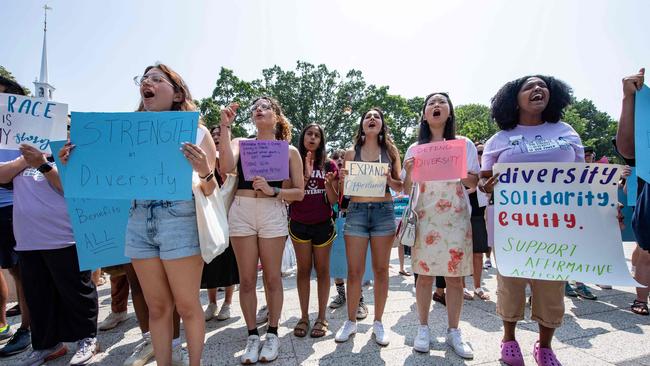
The landmark decision by the Supreme Court last week to outlaw race-based affirmative action programs at US universities suggests the US is seeking to remove government-backed racial division, while Australia is seeking to entrench it.
A body like the voice would almost certainly be unconstitutional in the US, given the arguments put forward by the justices in their majority 6-3 ruling, which overturned the earlier, reluctant endorsements of the Supreme Court, dating back to the late 1970s.
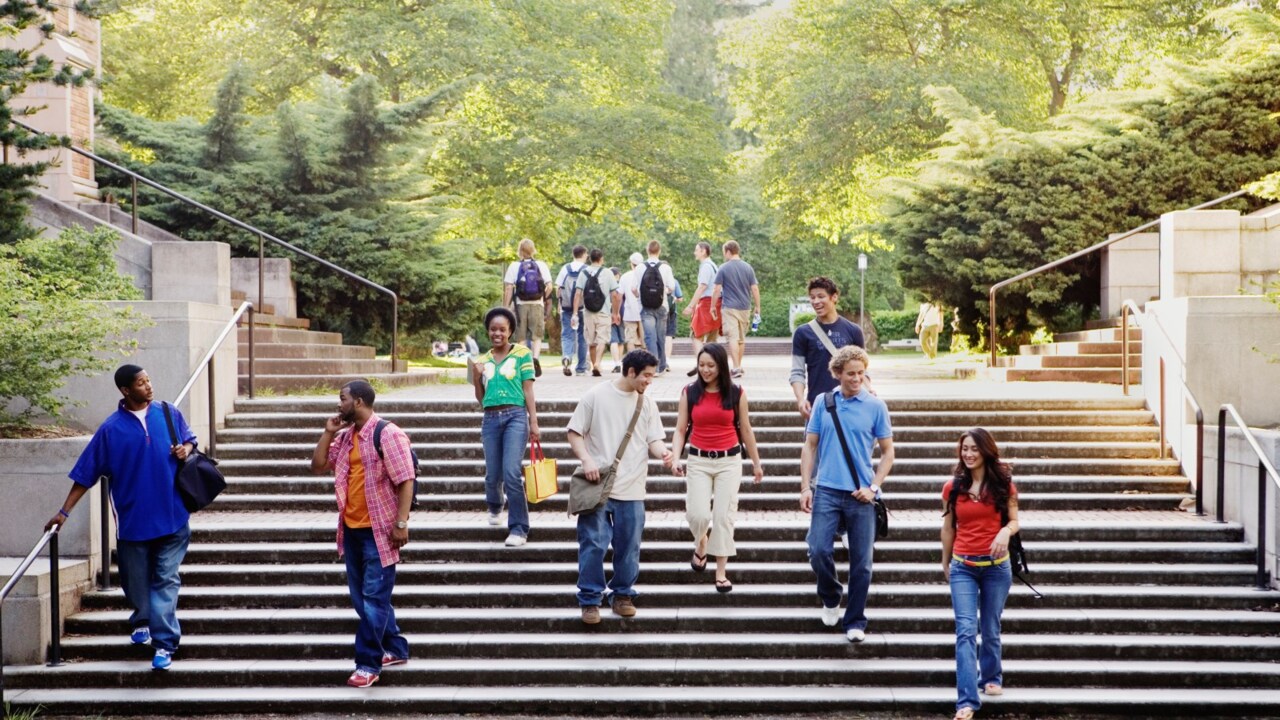
On a plain reading of US law, they were right. The 14th amendment, passed in the wake of the Civil War – one fought in part to abolish slavery – made any government-sponsored racial discrimination unconstitutional.
“(Earlier judgments) concluded, wrongly, that the touchstone of an individual’s identity is not challenges bested, skills built, or lessons learned but the colour of their skin. Our constitutional history does not tolerate that choice,” Chief Justice John Roberts wrote.
And the landmark Civil Rights Act of 1964, which sought to stamp out generations of institutionalised racism, specifically declared “no person shall, on the ground of race, colour, or national origin, be excluded from participation in, be denied the benefits of, or be subjected to discrimination under any program or activity receiving federal financial assistance”.
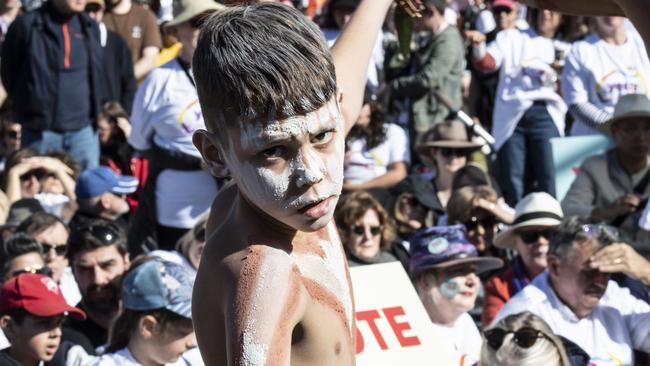
It’s pretty obvious that affirmative action – underpinned by public funding of universities, including private ones such as Harvard – had been flouting exactly that.
Beyond the law, the majority of the judges were morally right, too, providing arguments that should offer pause to advocates of our own voice proposal.
“Distinctions between citizens solely because of their ancestry are by their very nature odious to a free people whose institutions are founded upon the doctrine of equality,” the judges said in their verdict.
Australians don’t have an equivalent constitutional bill of rights (as the response to the Covid-19 pandemic made uncomfortably clear), but shouldn’t these distinctions be odious to us too?
In his brilliant concurrence, Clarence Thomas, himself black, pointed out “racial categories are little more than stereotypes, suggesting that immutable characteristics somehow conclusively determine a person’s ideology, beliefs, and abilities”.
“While I am painfully aware of the social and economic ravages which have befallen my race and all who suffer discrimination, I hold out enduring hope that this country will live up to its principles … that all men are created equal, are equal citizens, and must be treated equally before the law.”
The justifications for affirmative action – with its superficial appeal of pursuing diversity or atoning for past injustices – falls apart at a moment’s scrutiny. The differences in experience across individuals within racial groups are vastly greater than the average differences among racial groups themselves.
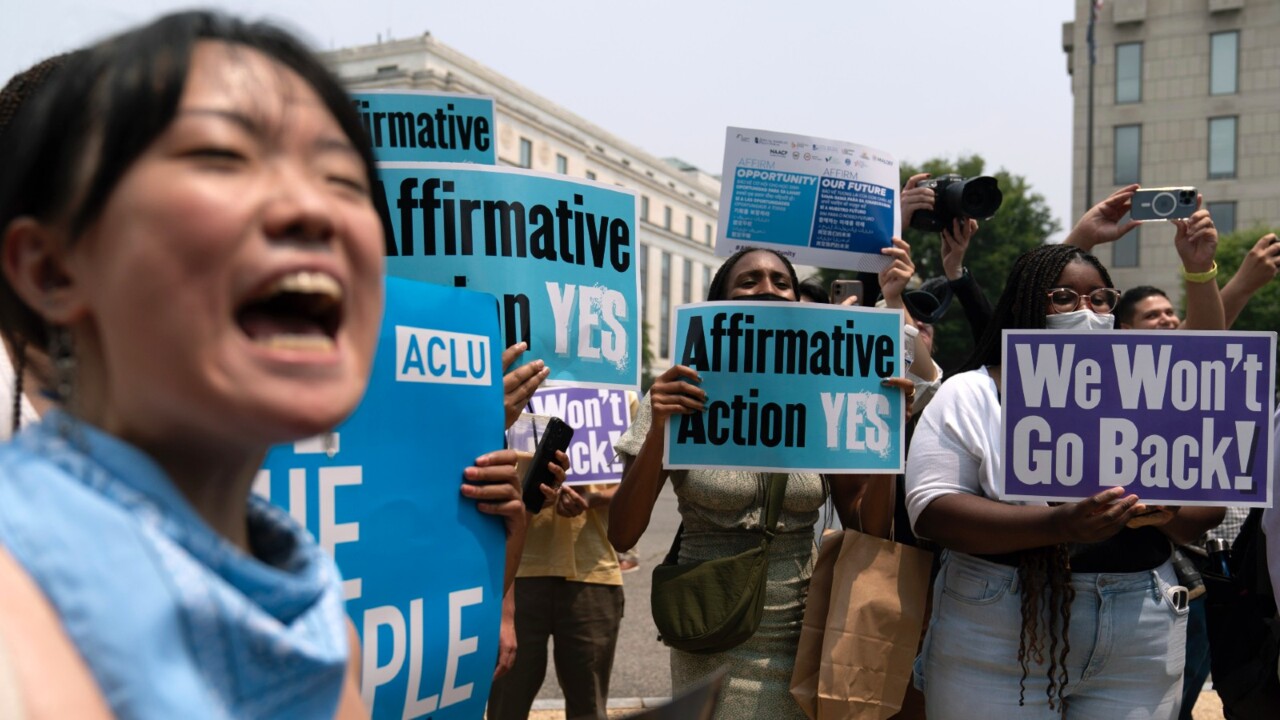
A white and a black applicant to Harvard from New York’s wealthy Upper East Side, whose professional parents sent them to private schools, have far more in common than they have with a working-class white kid from the poorest cities of America’s South.
Indeed, numerous studies show the bulk of black and Hispanic students accepted into elite universities with the help of affirmative action programs are themselves from high socio-economic backgrounds.
The composition of the Supreme Court highlights the absurdity of lumping individuals together according to racial groups: Thomas and fellow black justice Ketanji Brown Jackson have polar opposite views of affirmative action and jurisprudence. That’s real diversity.
The voice would be affirmative action on steroids, redistributing political power away from the non-Aboriginal population to the Aboriginal population, in the same way race-based university admissions redistribute places away from Asian students to black and Hispanic students.
Political power and university places are zero-sum games.
And, by the way, why should Asians, Jewish applicants – potentially from poorer families, whose ancestors also suffered systematic discrimination – be penalised?
The voice, especially one born of a constitutional amendment, would make racial distinctions permanent (at least the parliament could abolish ATSIC when it failed).
The voice would be inviolable whatever its impact.
When the Supreme Court last tentatively endorsed race-based admissions, in a 2003 judgment, it explicitly assumed the need for such programs would naturally expire “in 25 years”.
Yet 20 years on such programs show no sign of abatement. On the contrary, they have expanded, creating a highly paid army of “diversity experts” in universities, government and big businesses, which understandably demand ever more race-based policies.
Indeed, the ever greater focus on race in the US, fuelled by affirmative action policies, has led to a more fractured, embittered society.
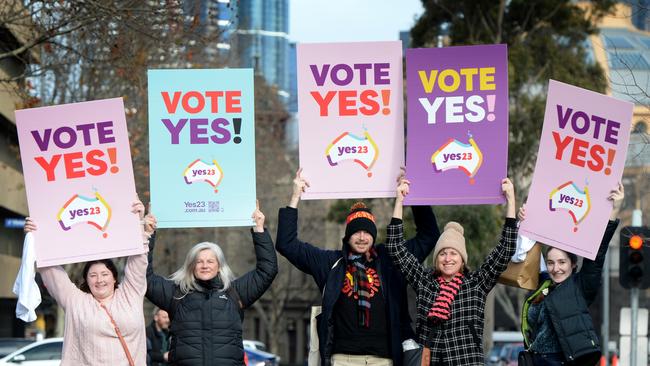
At US universities, “racial progress on campuses adopting affirmative action admissions policies has stagnated”, the court noted.
More broadly, the share of black Americans who say relations between whites and blacks are “very” or “somewhat” good has steadily fallen from 66 per cent in 2013 to 33 per cent last year, according to Pew Research. Among whites, the share has fallen from 72 per cent to 43 per cent over the same period.
The voice, by insisting policy proposals be viewed through a racial prism, could well have a similar negative impact on Australia’s social cohesion.
Large majorities of Americans, including many Democrats whose elite members have excoriated the Supreme Court’s decision, appear to support scrapping affirmative action, holding out hope the new constitutional settlement will ultimately prevail.
Australians’ support for a new racially determined body appears to be more finely balanced, according to polls, suggesting the arguments in the Supreme Court’s majority opinion (which are relevant far beyond its jurisdiction) aren’t being appreciated widely enough.
Replacing one form of racism with another, however subtle or ostensibly well-meaning, is not the path to a colourblind society, which is surely what most of us should aspire to.


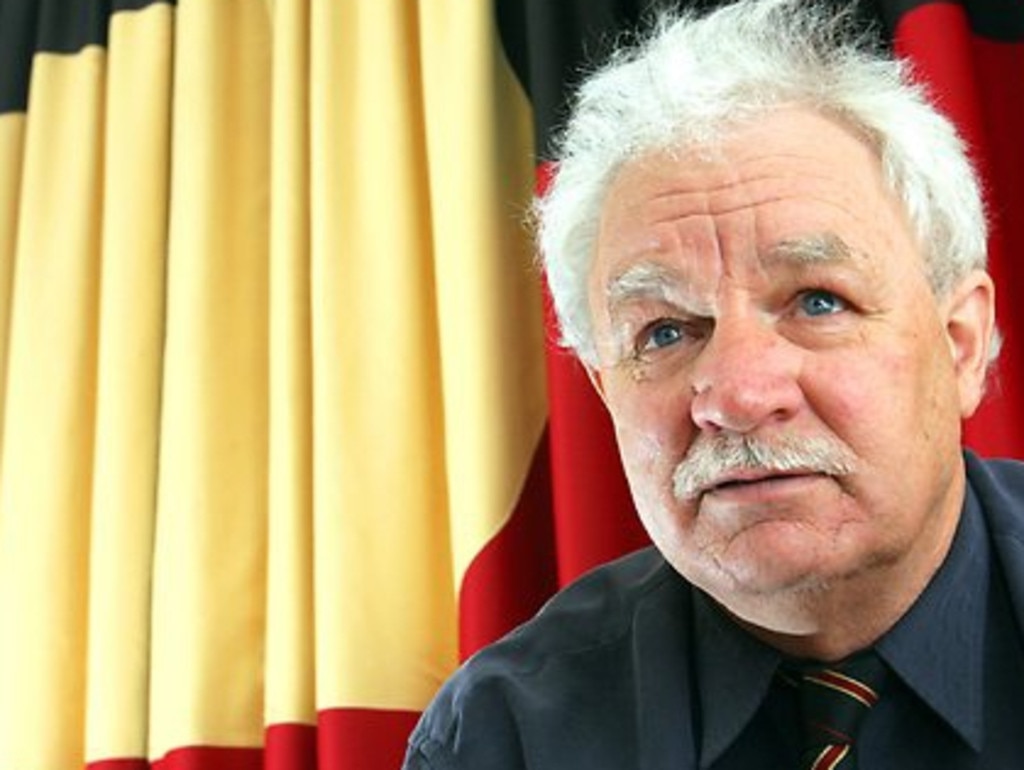

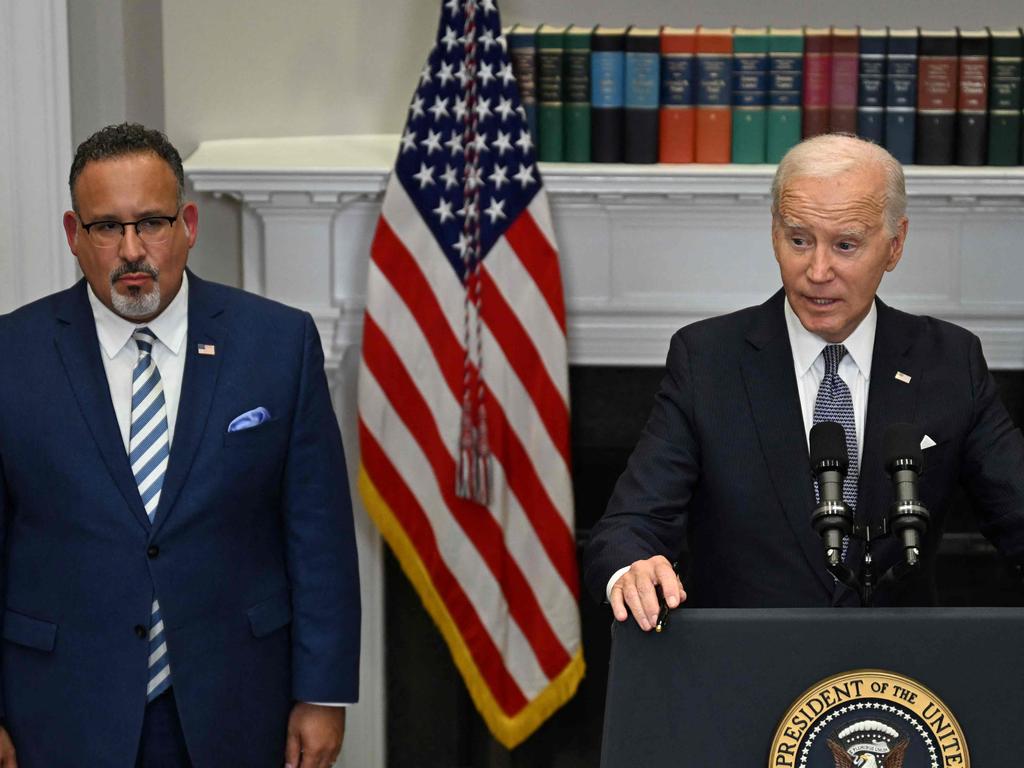
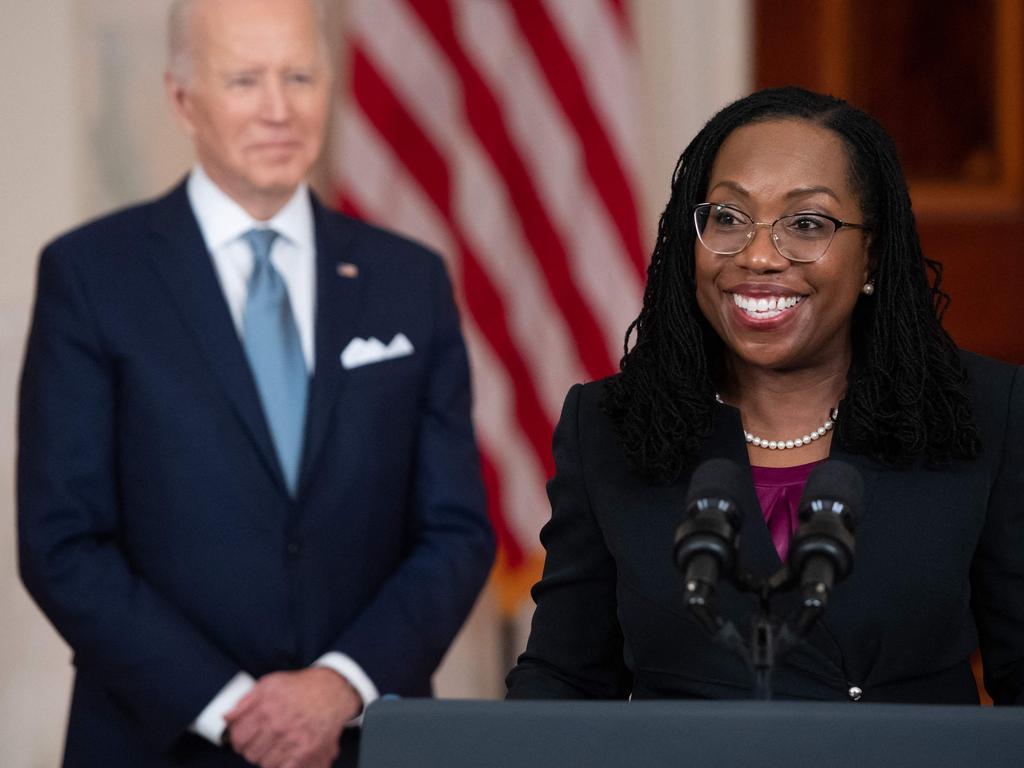


If an Indigenous voice to parliament becomes a reality following a successful Yes referendum later this year, it will highlight the starkly different trajectories the US and Australia are taking when it comes to the role of race in law and society.